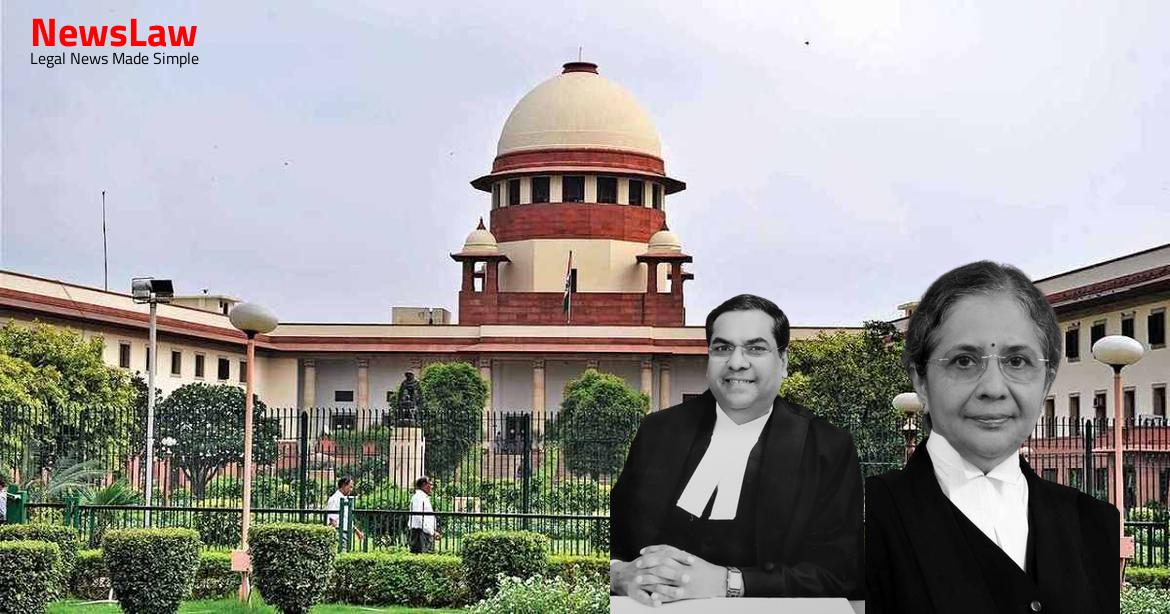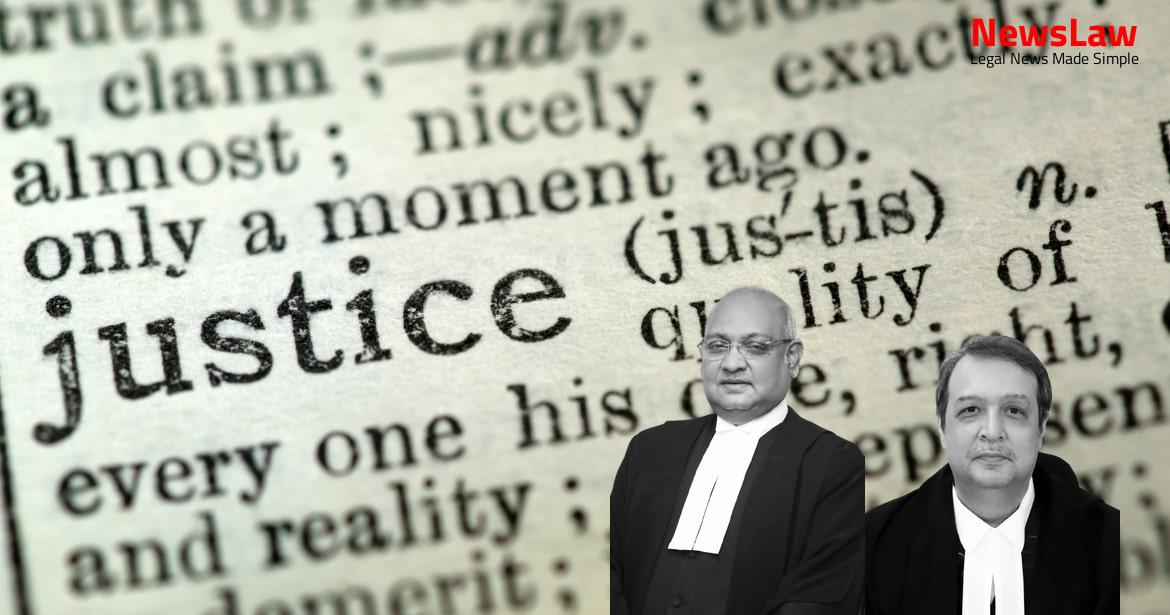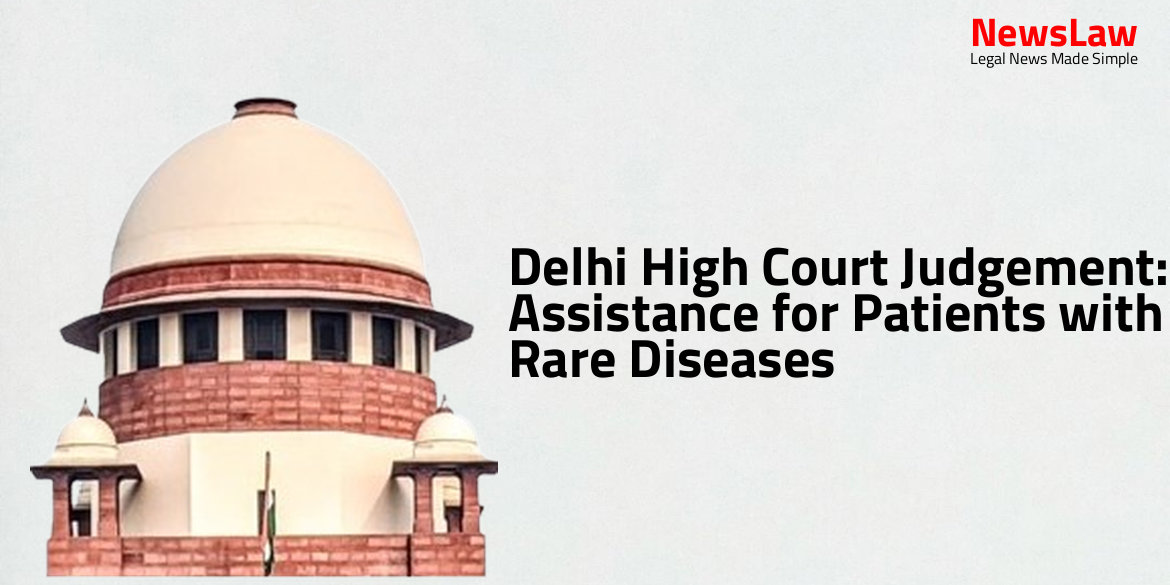Explore the complexities of legal interpretations in a recent mutual fund winding up case, where the court’s scrutiny of majority consent and statutory provisions plays a crucial role. Dive into the nuances of understanding commercial regulations and the significance of legislative intent for effective decision-making in the financial sector.
Facts
- Immediate directions required as embargo prohibiting redemption of units has been in place for over ten months
- Registry directed to scan and make e-copies of Observer’s report available to counsels
- SEBI issued show cause notice pending adjudication after receipt of forensic audit report
- Objecting unitholders claim fraud by trustees and AMC would entitle restitution
- Question of privilege regarding the forensic audit report raised
- Segregation of issues regarding trustees/AMC liability for later examination
- Concerns raised about trustees’ decision to wind up schemes as a smokescreen
- Public sentiments and confidence in mutual funds undermined leading to privation and harassment for unitholders
- Agreement to disburse Rs.9,122 crores among unitholders in proportion to their interest in the assets of the scheme
- The disbursal to unitholders is only possible if the six schemes are wound up
- Decision made in the larger public interest to focus on the aspect of ‘unitholders’ consent to winding up’
- Trustees’ submissions mentioned the NAV of the schemes as higher on January 15, 2021, compared to April 23, 2020
- Five of the six schemes have turned cash positive
- Immediate availability of accumulated distributable cash proceeds of Rs.9,122 crores for disbursement to unitholders
- Assets Under Management (AUM) of the six schemes increased from Rs.25,648 crores to Rs.26,343 crores from April 23, 2020, to January 15, 2021
Also Read: Land Auction Dispute Resolution
Analysis
- The analysis focused on the e-voting logs, transaction logs, and data from the Master Database.
- Multiple votes from the same IP address were detected during the Instapoll Votes.
- The E-Voting platform provided one-time passwords randomly generated without human intervention for voter authentication.
- Issues with capturing public IP addresses for e-votes were explained due to technical implementation problems.
- The event logs of the Web Servers and database servers showed no abnormal events, indicating normal system functionality.
- A random selection of 0.5% of votes was verified in the Master Database for accuracy.
- The word ‘consent’ in the context of the clause refers to ‘consent of the majority of the unitholders’, excluding those who are not agreeable.
- A person wins by a majority of votes, indicating the greater number of votes in favor.
- Having a definitive opinion from all unitholders for voting in a poll on winding up a mutual fund scheme is practically impossible.
- The concept of majority implies the greater number, not a fixed number.
- The quorum requirement for a corporation with an indefinite number of electors only necessitates a majority of those existing at the time, not all.
- The practical interpretation of a statute is given more weight if re-enacted with the same interpretation.
- Numbers of unitholders can fluctuate with purchase or redemption, making it impractical to require consent from ‘fifty percent of all unitholders’.
- Consent in Regulation 18(15)(c) should be by a majority of unitholders who exercise their voting rights on the winding up proposal.
- An interpretation that avoids absurdity and serves the legislative purpose should be favored over one leading to futility.
- The importance of interpretations in commercial regulations to avoid chaos and deadlock, particularly in modern regulatory enactments.
- Diversification in investment portfolios through mutual funds managed by professionals is preferred for ordinary investors.
- The consent of unitholders is binding collectively, not individually, as stated in the mutual fund regulations.
- A minority vote is necessary for cases where a majority of unitholders do not approve the proposal.
- The Black’s Law Dictionary defines majority as more than half of a total number.
- Meaning ‘consent of unitholders’ requires a simple majority for winding up a particular mutual fund scheme.
- Absurdity in statute interpretation includes results that are unworkable, illogical, or pointless.
- The acts of a corporation are those of the majority of the corporators assembled together.
- Quorum requirements need a major part to be present, with a majority in favor of the resolution for valid decisions.
- The distinction between simple and special majority in corporate decision-making.
- Interpretations should be clear to avoid confusion and ensure effective results in legislative intent.
- Presence of the majority of members constitutes a valid meeting if no specific quorum rules are in place.
- Election by a definite body requires the majority of that body, while the presence of the definite body is essential in electoral assemblies with both definite and indefinite bodies.
- The number of electors in varied bodies can fluctuate periodically, impacting quorum calculations.
- Section 55(3) of the Companies Act, 2013 requires consent of holders of three-fourths in value of preference shares in case of failure to redeem or pay dividend.
- Section 103 of the Companies Act, 2013 specifies the minimum quorum for shareholder meetings.
Also Read: Analysis of Bail Conditions in Criminal Appeal No. INSC 48/2024
Decision
- In the first hearing on 3 December, 2020, the trustees were permitted to call a meeting of the unitholders for seeking approval for winding up.
- The trustees approved notices to be sent to the unitholders of the six schemes during their meeting on 5 December, 2020.
- SEBI was directed on 9 December, 2020 to appoint an Observer for the e-voting by unitholders scheduled between 26 and 29 December, 2020.
- E-voting facility was provided from 09:00 a.m. on 26 December, 2020 till 06:00 p.m. on 28 December, 2020.
- A video conferencing meeting was set for 29 December, 2020 to seek approval of the unitholders for or against the winding up of the six schemes.
- Unitholders participating in the meeting could vote on 29 December, 2020 during the duration of the meeting till fifteen minutes after its closure.
Also Read: Conviction Upheld for Murder and Concealment of Body
Case Title: FRANKLIN TEMPLETON TRUSTEE SERVICES PVT. LTD. Vs. AMRUTA GARG AND ORS. ETC. ETC. (2021 INSC 87)
Case Number: C.A. No.-000498-000501 / 2021



